5 Rare and Beautiful Farm Dog Breeds
You can’t go wrong with a Border Collie or Great Pyrenees, but there’s a lot of doggie diversity out there.
5 Rare and Beautiful Farm Dog Breeds
You can’t go wrong with a Border Collie or Great Pyrenees, but there’s a lot of doggie diversity out there.
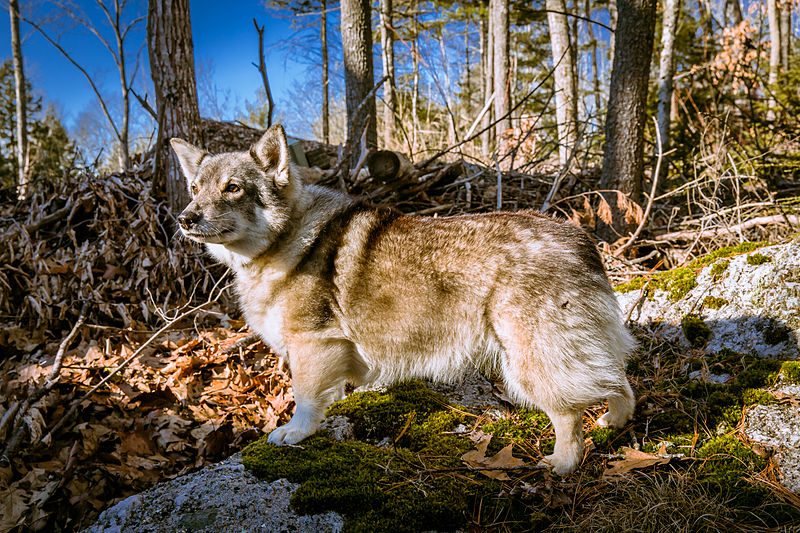
English Shepherd
Considered the original American farm dog, this breed allegedly came over on the Mayflower, and may have once been the most common in America. Now relatively rare, they were the standard breed that settlers brought with them as they moved across the continent and established small farms. Although originally used as a herd dog in the British Isles, the English Shepherd was further developed in the U.S. as an all-purpose farm dog, used for everything from guarding livestock to eradicating vermin.
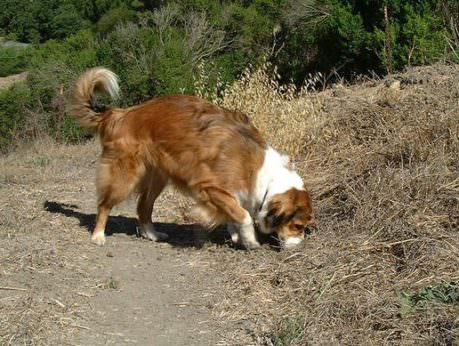
Tibetan Mastiff
This bear of a dog historically protected livestock from predators high in the Tibetan plateau. They would be a terrible choice for a Florida homestead, but are well-suited to Alaska, Canada, and high-altitude areas. Extremely tough and capable of surviving harsh conditions, Tibetan Mastiffs are said to possess the strength and agility to kill large predators, like snow leopards. They are descended from Tibetan wolves and are believed to be one of the progenitors of other mountain breeds, such as the Saint Bernard and the Bernese Mountain Dog.
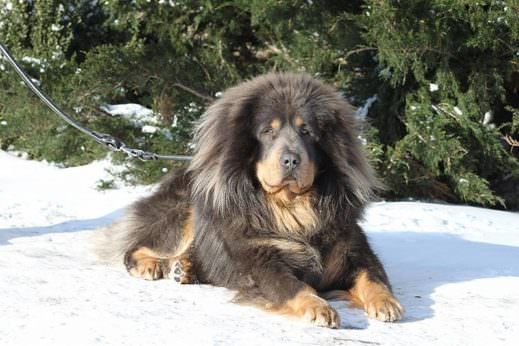
Swedish Vallhund
Also known as the Swedish Cow Dog, this small, stocky breed arose as a herder in Scandinavia during Medieval times. By 1942, it was nearly extinct, though the population is now stable and has spread throughout the world, including to the U.S. The Vallhund is considered a close relative of the Welsh Corgi.
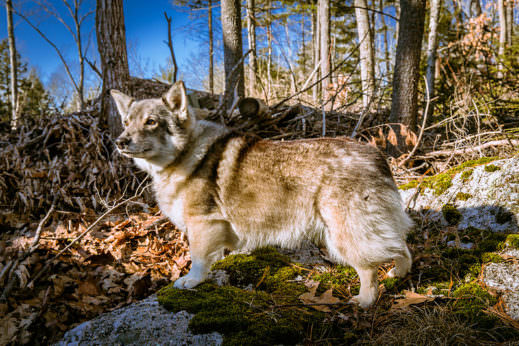
Bergamasco Sheep Dog
This one always gets giggles and Rastafarian jokes (it really does have dreadlocks). But with all that fur it wouldn’t be very happy in a Caribbean climate. It originates in the Italian Alps where the thick coat kept it warm on freezing nights out with the sheep. There are believed to be just 600 Bergamasco Sheep Dogs remaining today.
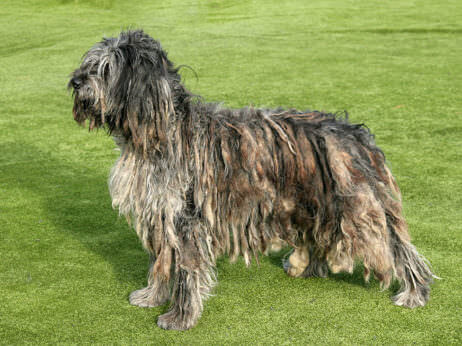
Azawakh
With the slim build and short hair of a greyhound, this West African guardian breed might be a suitable choice for a livestock operation in the deserts and scrublands of the southwestern U.S. They were originally bred by the Touareg and other nomadic groups of the Saharan and Sahel regions of Africa, who used the Azawakh to protect their goats and other animals. Extremely fast runners, Azawakhs were also employed to hunt gazelle.

Follow us
This work is licensed under a Creative Commons Attribution-NoDerivatives 4.0 International License.
Want to republish a Modern Farmer story?
We are happy for Modern Farmer stories to be shared, and encourage you to republish our articles for your audience. When doing so, we ask that you follow these guidelines:
Please credit us and our writers
For the author byline, please use “Author Name, Modern Farmer.” At the top of our stories, if on the web, please include this text and link: “This story was originally published by Modern Farmer.”
Please make sure to include a link back to either our home page or the article URL.
At the bottom of the story, please include the following text:
“Modern Farmer is a nonprofit initiative dedicated to raising awareness and catalyzing action at the intersection of food, agriculture, and society. Read more at <link>Modern Farmer</link>.”
Use our widget
We’d like to be able to track our stories, so we ask that if you republish our content, you do so using our widget (located on the left hand side of the article). The HTML code has a built-in tracker that tells us the data and domain where the story was published, as well as view counts.
Check the image requirements
It’s your responsibility to confirm you're licensed to republish images in our articles. Some images, such as those from commercial providers, don't allow their images to be republished without permission or payment. Copyright terms are generally listed in the image caption and attribution. You are welcome to omit our images or substitute with your own. Charts and interactive graphics follow the same rules.
Don’t change too much. Or, ask us first.
Articles must be republished in their entirety. It’s okay to change references to time (“today” to “yesterday”) or location (“Iowa City, IA” to “here”). But please keep everything else the same.
If you feel strongly that a more material edit needs to be made, get in touch with us at [email protected]. We’re happy to discuss it with the original author, but we must have prior approval for changes before publication.
Special cases
Extracts. You may run the first few lines or paragraphs of the article and then say: “Read the full article at Modern Farmer” with a link back to the original article.
Quotes. You may quote authors provided you include a link back to the article URL.
Translations. These require writer approval. To inquire about translation of a Modern Farmer article, contact us at [email protected]
Signed consent / copyright release forms. These are not required, provided you are following these guidelines.
Print. Articles can be republished in print under these same rules, with the exception that you do not need to include the links.
Tag us
When sharing the story on social media, please tag us using the following: - Twitter (@ModFarm) - Facebook (@ModernFarmerMedia) - Instagram (@modfarm)
Use our content respectfully
Modern Farmer is a nonprofit and as such we share our content for free and in good faith in order to reach new audiences. Respectfully,
No selling ads against our stories. It’s okay to put our stories on pages with ads.
Don’t republish our material wholesale, or automatically; you need to select stories to be republished individually.
You have no rights to sell, license, syndicate, or otherwise represent yourself as the authorized owner of our material to any third parties. This means that you cannot actively publish or submit our work for syndication to third party platforms or apps like Apple News or Google News. We understand that publishers cannot fully control when certain third parties automatically summarize or crawl content from publishers’ own sites.
Keep in touch
We want to hear from you if you love Modern Farmer content, have a collaboration idea, or anything else to share. As a nonprofit outlet, we work in service of our community and are always open to comments, feedback, and ideas. Contact us at [email protected].by Brian Barth, Modern Farmer
September 14, 2017
Modern Farmer Weekly
Solutions Hub
Innovations, ideas and inspiration. Actionable solutions for a resilient food system.
ExploreExplore other topics
Share With Us
We want to hear from Modern Farmer readers who have thoughtful commentary, actionable solutions, or helpful ideas to share.
SubmitNecessary cookies are absolutely essential for the website to function properly. This category only includes cookies that ensures basic functionalities and security features of the website. These cookies do not store any personal information.
Any cookies that may not be particularly necessary for the website to function and are used specifically to collect user personal data via analytics, ads, other embedded contents are termed as non-necessary cookies.